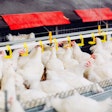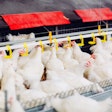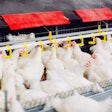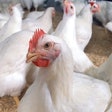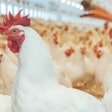The Environmental Protection Agency issued a direct final rule on Dec. 23, 2011 to revise certain provisions of the National Emission Standards for Hazardous Air Pollutants for Prepared Feed Manufacturing.
The direct final rule, which became effective Feb. 21, revises an earlier rule the agency finalized in 2010 that requires general housekeeping practices and sets efficiency standards for cyclones that operate on pellet mills. The rule applies to facilities that produce more than 50 tons of feed per day and also add magnesium or chromium to their feed.
The earlier 2010 regulation required facilities to formally certify that existing pellet mill cyclones were designed to reduce emissions of particulate matter by at least 95 percent. The American Feed Industry Association, U.S. Poultry & Egg Association and National Grain and Feed Association were able to demonstrate to the Environmental Protection Agency that the three alternatives for complying with the certification mandate for existing cyclones were problematic and often impossible. The certification requirement would force the replacement of a large universe of existing, properly functioning cyclone units.
The agency confirmed in the direct final rule that it was not its intent for the industry to replace existing cyclones. Although the direct final rule maintains the certification requirements for new cyclones, it significantly revises requirements for existing cyclones. Under the streamlined measure, existing facilities will be required operate cyclones in accordance with good air pollution control practices. The direct final rule also simplifies inspection and documentation requirements and clarifies earlier provisions pertaining to bulk load and the operation of doors.








